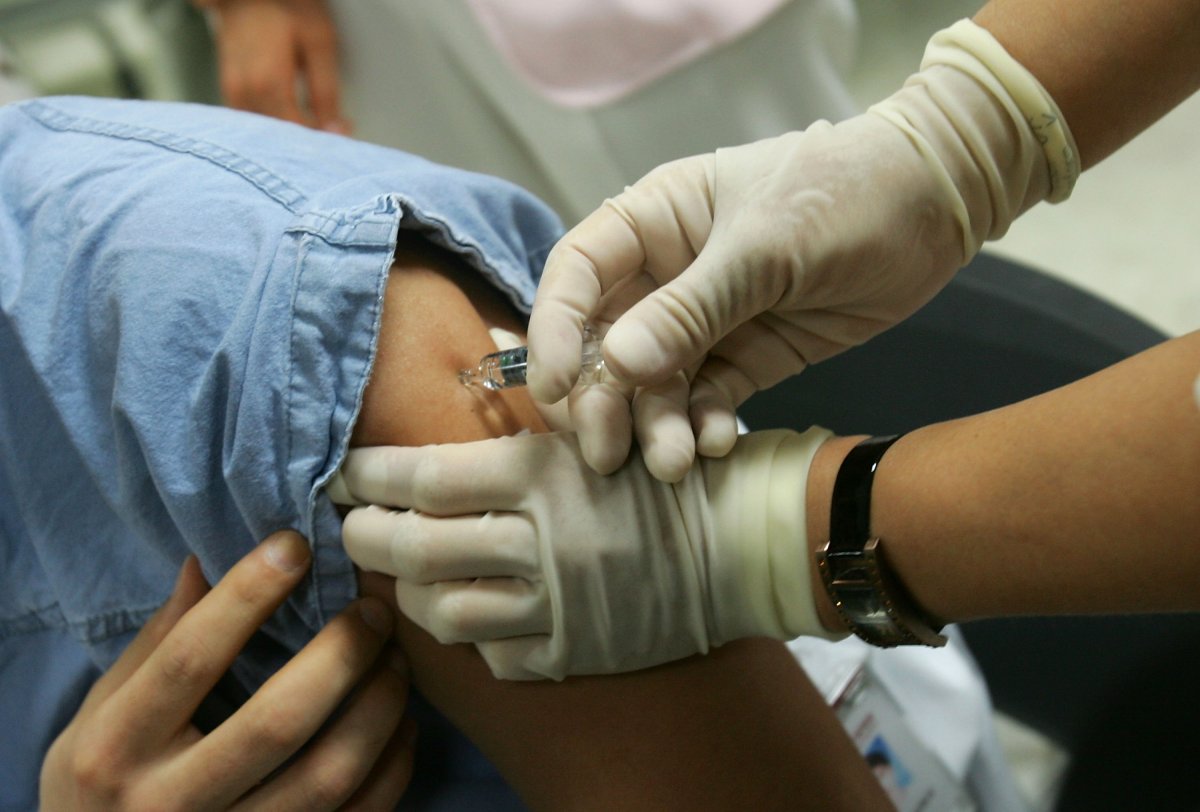On Thursday, the Korea Disease Control and Prevention Agency (KDCA) said that 72 deaths following flu vaccinations in the country were not related to the inoculation program, and encouraged citizens to continue getting vaccinated.
After reviewing the autopsies of 71 deceased patients, most of whom were in their 70s and 80s, the KDCA found that there was no direct link between the flu vaccination and deaths. The cause of death in the remaining autopsy is unknown.
Of those 71 autopsies, the agency found that each person had a serious underlying health condition that resulted in death.
On Tuesday, the U.S. Centers for Disease Control reported that among the deaths reviewed by the KDCA, there have been no associations with anaphylactic shock, a serious allergic reaction that can follow immunization and lead to fatalities.
According to a report released by the KDCA, a total of 9.68 million people have been vaccinated via South Korea's National Immunization Program so far. Of those vaccinated, at least 1,551 people have reported adverse side effects.
Despite a rise in public concern, the agency has stated that it does not plan to suspend its public immunization program, and urges citizens to continue getting vaccinated.
"After reviewing death cases so far, it is not the time to suspend a flu vaccination program since vaccination is very crucial this year, considering ... the COVID-19 outbreak," Jeong Eun-Kyung, director of the KDCA, said during a briefing this week.

The KDCA reported that the vaccinations associated with deaths had come from seven different companies. The spike in fatalities prompted health officials in Singapore to temporarily halt vaccinations from two companies—one produced by South Korean company SK Bioscience, and the other by the French multinational Sanofi—according to the South China Morning Post.
Though there have been no fatalities reported in Singapore, health authorities say they are pausing vaccinations for precautionary reasons.
In the U.S., the CDC estimates that influenza has resulted in 45 million illnesses, between 140,000 and 810,000 hospitalizations, and between 12,000 and 61,000 deaths annually since 2010.
This season, at least 150 million doses of the flu vaccination have been distributed, and there have been no safety concerns or deaths linked to vaccinations so far, according to the CDC.
"Flu vaccines have been used safely in the United States for decades, with millions of doses given each flu season," the agency wrote on its website, stating that it will continue to monitor the situation in South Korea closely.
Newsweek reached out to the CDC for additional comment, but did not receive a comment in time for publication.
On Monday, South Korean President Moon Jae-in urged citizens to "Please trust the health authorities to review the conclusions and presentations made with experts."
"It is confirmed that there is no direct causal relationship between death and vaccination as a result of examinations and comprehensive judgments such as autopsy on cases reported so far."
Uncommon Knowledge
Newsweek is committed to challenging conventional wisdom and finding connections in the search for common ground.
Newsweek is committed to challenging conventional wisdom and finding connections in the search for common ground.
About the writer
To read how Newsweek uses AI as a newsroom tool, Click here.








